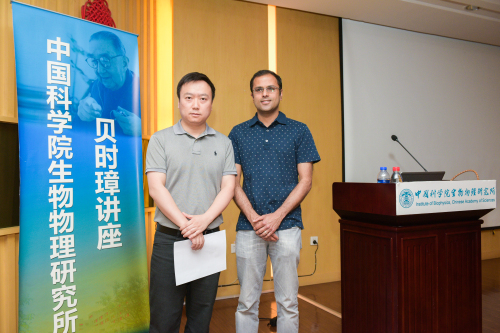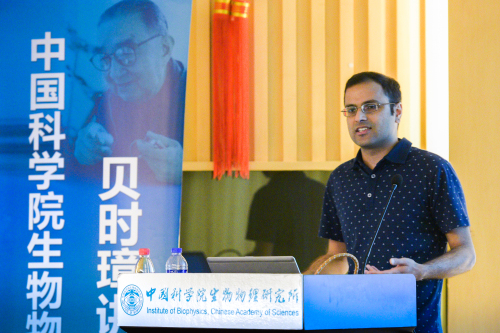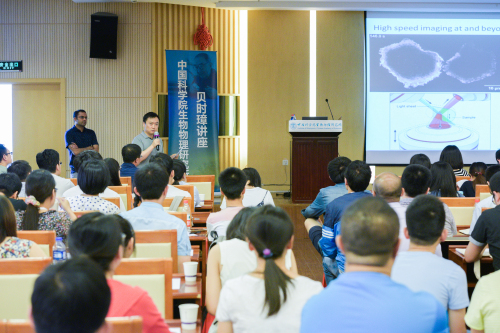Dr. Hari Shroff from National Institutes of Health Visited IBP and Delivered BEI Shizhang Lecture
On June 8, 2017, Dr. Hari Shroff from National Institutes of Health(NIH), invited by Prof. Dong Li, visited IBP and gave a BEI Shizhang Lecture entitled High speed imaging at and beyond the diffraction limit.
Dr. Hari Shroff’s research focuses on developing light sheet fluorescence and super-resolution microscopy to study fast 3D cellular processes, such as neurodevelopment. In this lecture, Dr. Shroff shared the latest research progress in his group. He first introduced the requirements of different biological processes for high-speed imaging, and emphasized the importance of developing high-speed super-resolution imaging tools. After that he pointed out that there were two techniques that are good at achieving fast 4D image for a biological living sample, one of which is Structured Illumination Microscopy (SIM) and the other is the Selective Plane Illumination microscopy (SPIM). Regarding the structured light illumination super-resolution imaging technique, Dr. Hari Shroff compared the advantages and disadvantages of classic SIM technology, and analyzed the effects of Total Internal Reflection Fluorescence Microscopy (TIRF), Adaptive Optics (AO) combined with SIM technology for the usage in different biological specimen. For three-dimensional imaging, SPIM achieves excellent resolution at high penetration depths meanwhile minimally perturbs the live samples at the same time. SPIM offers a number of advantages over established techniques such as strongly reduced photo-bleaching, high dynamic range, and high acquisition speed. He presented the recent development of SPIM technique in his group: The Dual-view iSPIM system and diSPIM imaging with a mirror instead of the traditional slide. Those techniques improved the imaging speed and spatial resolution of conventional SPIM for C.elegans neuro-development research.
After the reports, Dr. Hari Shroff answered the questions from the audience, and made further academic exchange with Prof. Dong Li and some principal investigators from IBP and other universities.



.0

